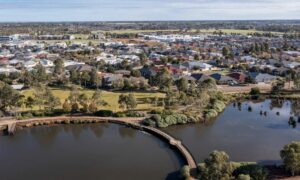Almost ten years ago, when Walter Isaacson’s biography of Einstein was first published, the world generally seemed to be safely helmed by science. Global leadership, though struggling badly, was fairly managing to keep the faith of post-WWII peace hopes for the long term future of humanity.
 2017 finds a world Einstein would despise, filled with “alternative facts”, rampant militaristic authoritarianism and oppression of individual freedoms and creativity. It is a world closely resembling Germany of the late 1930s which Einstein fled as Hitler came to power, along with fellow leading German Jewish émigré scientists who ensured Germany were never to win WWII. It was these compatriots who comprised scientists on The Manhattan Project; creators of the atomic bomb.
2017 finds a world Einstein would despise, filled with “alternative facts”, rampant militaristic authoritarianism and oppression of individual freedoms and creativity. It is a world closely resembling Germany of the late 1930s which Einstein fled as Hitler came to power, along with fellow leading German Jewish émigré scientists who ensured Germany were never to win WWII. It was these compatriots who comprised scientists on The Manhattan Project; creators of the atomic bomb.
Isaacson offers an overall superbly contemplative, deeply reasoned examination of Albert Einstein’s life and times, alongside the tide of scientific and political history which shaped Einstein, before his own intelligence completely shattered and reshaped science history again with a new foundation to contemporary physics and the universe in the equation, e=mc2.
The daunting challenge of adequately surmising the man and the science in historic context has been met by gently laying focus more on the warm, fascinating, yet distant persona of Einstein, through which Isaacson distils the interaction of his inner selves: scientist, non-conformist, activist, pacifist, Jew, refugee, celebrity, philosopher and husband. Isaacson writes with singularly sharp objective observation, melded with carefully managed subjective musing on a very humble, flawed but profoundly moral man.
To list ‘husband’ last in the previous paragraph is to correctly acknowledge that Einstein placed anything deeply personal and familial at the periphery of his attentions. It is this distance that he placed between himself and close emotional rapport that allowed an inner care for humanity as a whole. It lived side by side with his obsessive quest to unify the mysteries of the universe into a single coherent theory which would illuminate them to humanity. This quest would continue up to his death, having begun as a child with the discovery of the magnetic fields of a compass.
Einstein’s development of the Special Theory of Relativity through to his breakthrough General Theory of Relativity is paralleled with his life trajectory from an untrammelled nonconformist capable of developing his core theoretical positions, through to his thought experiments and becoming a revered authority who was more trapped by mathematics than freed by the power of the intuitive imagination.
Isaacson’s book ebbs and flows between science and the man with generous ease. It dips into deeply-engaging valleys of intense scientific focus then rides up to equally engaging extrapolations of the personal and political threads of Einstein’s life.
Einstein: His Life and Universe is rippling with impassioned comprehension and drama, helping us to understand Einstein’s core need to place his work foremost.
Reviewed by David O’Brien
Twitter: @DavidOBupstART
Rating out of 10: 10
Re-released by: Simon & Schuster Australia
Originally released: September 2008
RRP: $24.99 paperback, $17.99 eBook




















